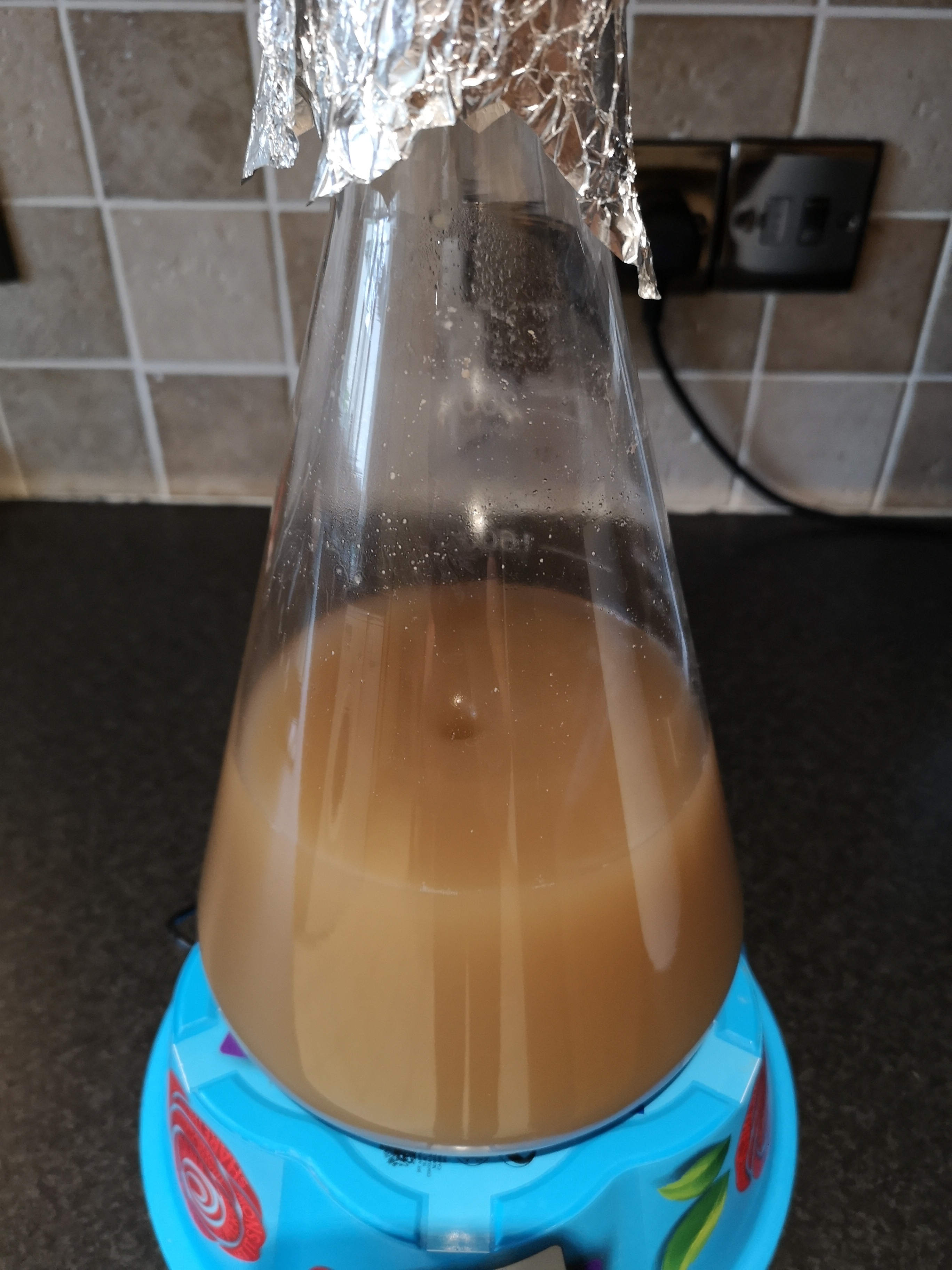peebee
Out of Control
This is a hint post rather than a question (unless I have it wrong!).
I've always been puzzled why some people have trouble getting a fermentation going. For me I chuck the yeast in and 6-18 hours later it's fermenting; it just happens that way. This might be one explanation?
Today was to be a brew day. Everything ready and the yeast starter has been clattering away (magnetic stirrer) for the past 36 hours. But I was suspicious about the starter so brew day is postponed.
I'd had this before with a near best-before date WLP002 (Whitelabs) yeast, hence I left it 36 hours. All the starter calculators are great at telling you volumes, step ups, malt extract amounts, etc. but gloss over another important factor … time. You can get the impression that 24 hours is enough, and for a reasonable "fresh" pack it seems to be. But a less than fresh pack? How do you tell the starter is ready? Foam and bubbles isn't a good indicator if using a stir plate because they quickly knock the gas out making it less of an indicator. If using a stir plate there won't be a sediment forming either. What I do is obvious, but perhaps some folk just put too much trust in the calculators and "24 hours"?
I'm suspicious of my starter because WLP002 is famous for creating large flocs, but the starter hasn't taken on its "snowstorm" appearance. If I was using other yeasts I wouldn't expect flocs anyway. So sterilise a pipette and take a wee sample. Stick a couple of drops on my refractometer and take a reading (if you use a hydrometer this is going to be more involved). Put the reading into a correction calculator (fermented wort, OG 1.037 or 100g dried malt extract in 1L) and out comes … 1.037. Clearly this starter hasn't even begun to "start"; if I'd chucked it into my day's hard work I'd be waiting a week for it to start before ditching it 'cos its gone off.
So I don't start my brew day, I contemplate what folk do it they treat their older liquid yeast packs as "direct pitch" (Wyeast) or even just not give it adequate time in a starter, and I unexpectedly get free time to bore you all with this drivel.
I've always been puzzled why some people have trouble getting a fermentation going. For me I chuck the yeast in and 6-18 hours later it's fermenting; it just happens that way. This might be one explanation?
Today was to be a brew day. Everything ready and the yeast starter has been clattering away (magnetic stirrer) for the past 36 hours. But I was suspicious about the starter so brew day is postponed.
I'd had this before with a near best-before date WLP002 (Whitelabs) yeast, hence I left it 36 hours. All the starter calculators are great at telling you volumes, step ups, malt extract amounts, etc. but gloss over another important factor … time. You can get the impression that 24 hours is enough, and for a reasonable "fresh" pack it seems to be. But a less than fresh pack? How do you tell the starter is ready? Foam and bubbles isn't a good indicator if using a stir plate because they quickly knock the gas out making it less of an indicator. If using a stir plate there won't be a sediment forming either. What I do is obvious, but perhaps some folk just put too much trust in the calculators and "24 hours"?
I'm suspicious of my starter because WLP002 is famous for creating large flocs, but the starter hasn't taken on its "snowstorm" appearance. If I was using other yeasts I wouldn't expect flocs anyway. So sterilise a pipette and take a wee sample. Stick a couple of drops on my refractometer and take a reading (if you use a hydrometer this is going to be more involved). Put the reading into a correction calculator (fermented wort, OG 1.037 or 100g dried malt extract in 1L) and out comes … 1.037. Clearly this starter hasn't even begun to "start"; if I'd chucked it into my day's hard work I'd be waiting a week for it to start before ditching it 'cos its gone off.
So I don't start my brew day, I contemplate what folk do it they treat their older liquid yeast packs as "direct pitch" (Wyeast) or even just not give it adequate time in a starter, and I unexpectedly get free time to bore you all with this drivel.






